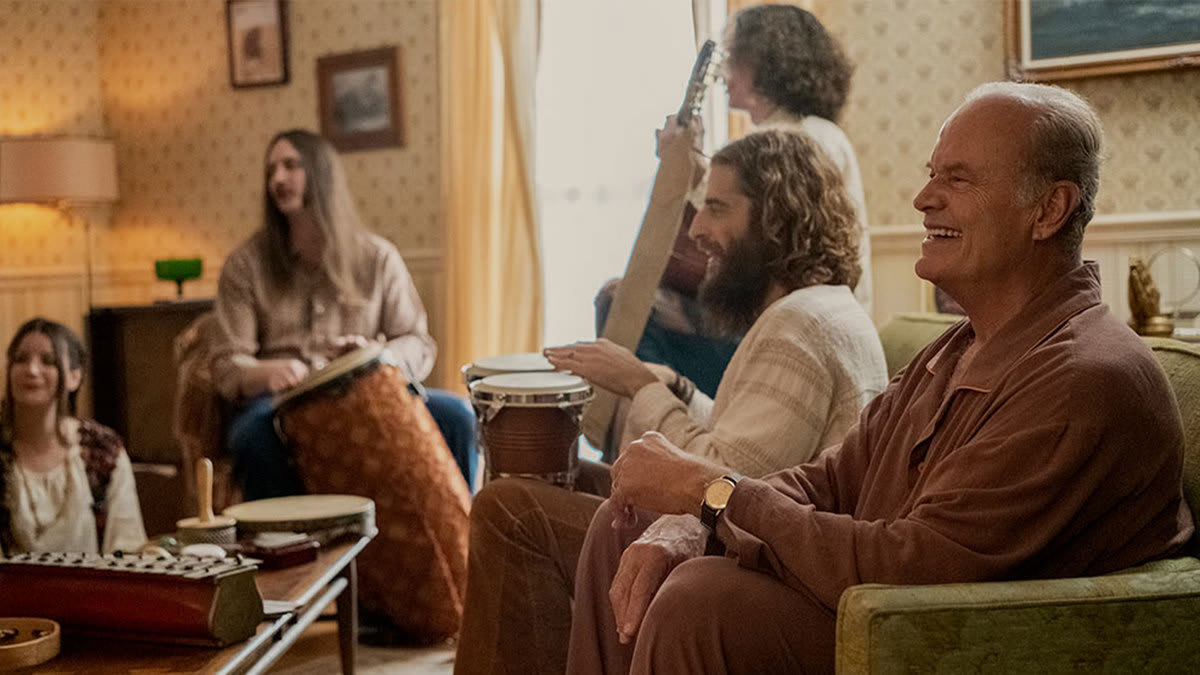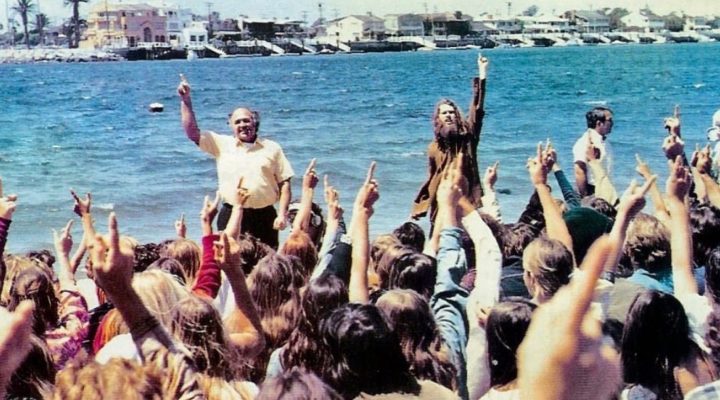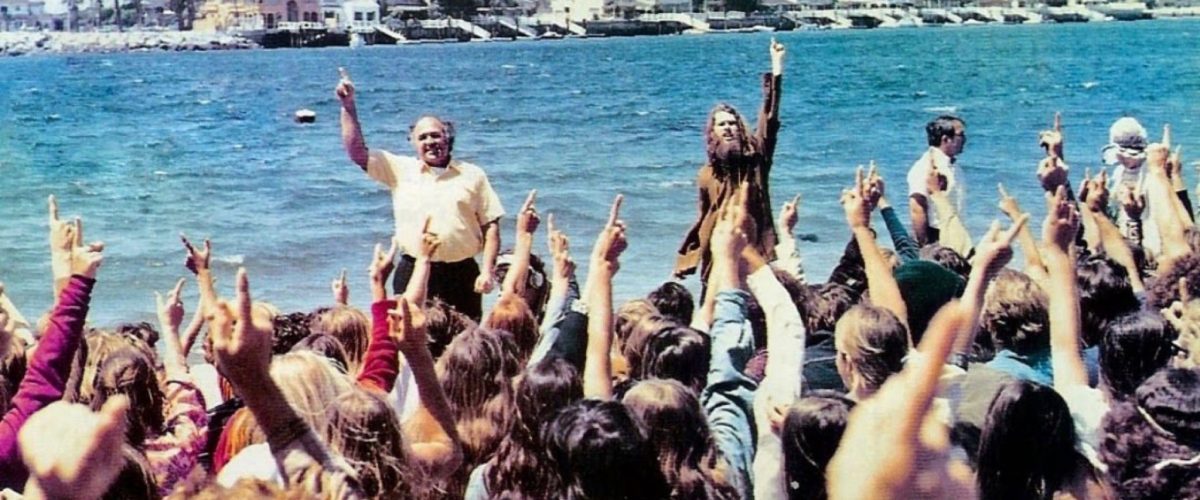The new film Jesus Revolution has been praised by Christian audiences, loved by people who lived through its events and already brought in more than $32 million in box office sales. But 50 years after the events took place, what’s so enticing about this story?
As a 22-year-old college student, I never had heard this story before. Honestly, I did not know the movie’s narrative was a true story until the end of the film when photographs of the characters in real life appeared on the screen with current life updates.
Although this film has much better production values than most other “Christian” movies, the plot still seemed quite dream-like to me. While it was inspiring, people of such different backgrounds and lifestyles welcoming each other and finding common ground for worship is strange and seems like a bit of a stretch in the extremely polarized world I’ve known.

Mallory Challis
I was on spring break when I saw the movie with my mom and sister in the middle of the day. Given the unpopular screening time, the only others in the theater were an elderly couple.
While exiting the theater, my mom and I struck up a conversation with the man, as he jokingly commented about the empty theater. He went on to tell us about his time traveling the world as a military chaplain, which prevented him from being in the United States during the time depicted in the film, the 1960s and ’70s.
When he arrived back home, he told us, he was both shocked at what was going on and jealous he missed out on it. His wife added, “This needs to happen again.” The couple was happy to hear I am pursuing a master of divinity to practice ministry.
Jesus Revolution tells the story of Chuck Smith and Lonnie Frisbee, two evangelical preachers from different walks of life. Smith is a clean-cut, mainstream conservative preacher with a small and struggling congregation who is introduced to Frisbee, a poncho-wearing hippie street preacher who predominantly ministers to people stricken with drug addiction.
Smith reluctantly welcomes Frisbee into his home, and the space is soon overtaken by more who have joined the emerging Jesus Movement. Two worlds collide.
While this new way of doing church didn’t come easy to Smith, he and Frisbee found a way that changed a generation. But, I wondered, could these radically inclusive worship events be facilitated for my generation?
Many of my peers who grew up Christian now call themselves “ex-vangelicals.” The play on words signifies how their faith was broken down and destroyed by the exclusivity and hatred the church often facilitates, leading them to leave mainstream conservative Christianity. Sometimes “ex-vangelicals” completely abandon their faith, but other times they leave institutional religion, saying it did not foster a meaningful relationship with God.

Scene from the movie “Jesus Revolution.”
Often, “ex-vangelicals” are more progressive-leaning or alternative. They question and resist tradition and are the ones who want to foster change within the church, something often uncomfortable for mainstream congregations.
For Gen Z, these “ex-vangelicals” are today’s hippies like Frisbee, and mainstream conservative Christianity represents the clean-cut congregation members like Chuck Smith.
However, today, instead of flooding into the church to start a revival, there is a continuous mass exodus of my generation from the church. And Christians are closing the doors behind them when they leave.
Can “ex-vangelicals” come back to Christianity? Sure. But that is not what they want. This group is leaving because the institutional church has forced them to ignore their questions and has been everything short of a welcoming space for the LGBTQ community, women, sexual abuse survivors and other marginalized communities. “Ex-vangelicals” no longer trust the church with their spiritual lives, and the church is doing nothing to correct itself.
“The house of God is monopolized by an exclusive group of people, not by the unfailing and radical love of Christ.”
This is what prevents a modern-day Jesus Revolution: The house of God is monopolized by an exclusive group of people, not by the unfailing and radical love of Christ.
If “ex-vangelicals” want to enter back into the church, they are required to do so on the terms of the mainstream conservative Christians already there. If they were allowed to come back and maintain their alternative and progressive identities, those currently in power would risk losing control over worship and church teachings.
How can believers today, in our increasingly polarized world, achieve a recreation of this dream-like history from 50 years ago?
According to BNG columnist Patrick Wilson, Christians within the church must start looking outside of its walls with intentionality, leaning not on the power and opinions of church leaders, but on the spiritual transformation of the “community and world.” That is, if Christians want a “Jesus revolution” to happen any time soon, priorities must be reorganized, conversations had and apologies made.
The church must turn its power and control back over to Jesus.
A new revolution for Jesus requires Christians to take a step outside their comfort zones and see the people who are most unlike them as beloved. It asks us to consider how people we do not understand, those we cringe at and even the ones we hate most are capable of an intimate and loving relationship with Jesus. It begs us to share the radical, unending love God has given to us with the people we ignore and avoid at all costs.
Church life must stop being framed from the standpoint of how successful we are at making others like us. Instead, it must become a vessel through which God’s children live and love more like Jesus.
That would be a revolution.
Mallory Challis is a senior at Wingate University and serves as BNG’s Clemons Fellow.
Related article:
Jesus Revolution helps us remember and calls us to hope again | Opinion by Patrick Wilson


